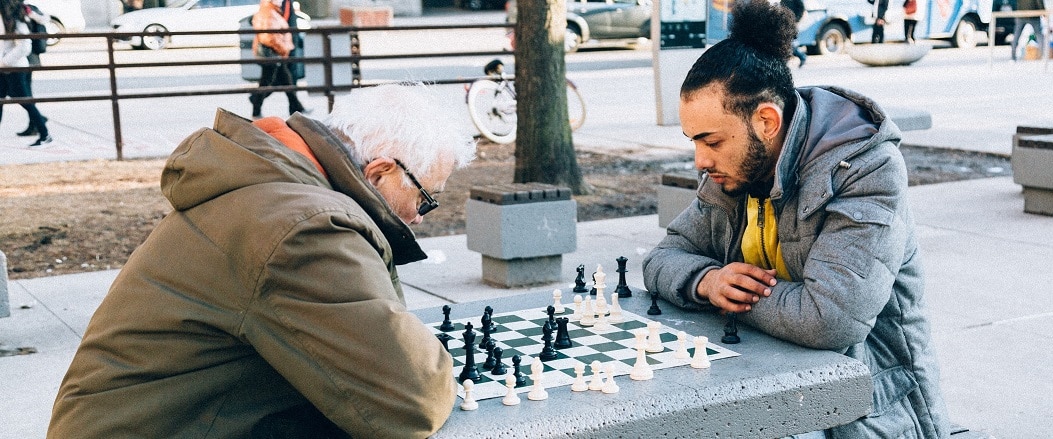
“What would I, a 74-year old bloke, have to do with this youngster?” one might respond when asked about teaming up with younger people to call on MEP candidates with joint requests. Age is one of the many criteria that we use to identify ourselves and pick those that we consider as our peers. What are the consequences of these unconscious boundaries? What would happen if we were getting rid of them?
Especially ahead of elections, we realise how challenging it is to engage in a democratic and constructive debate that would address the wide variety of citizens’ concerns. Because it is easier to identify the claims and needs of homogeneous groups, we tend to segment pre-election debates into clustered conversations with the different groups composing society.
AGE recent #AgeingEqual awareness-raising campaign against ageism showed the importance to have communities gathering to share testimonies, relate to one another stories and become aware that personal life experiences are the individual insights we get of a societal phenomenon. This awareness-raising step by those directly concerned is key to call for social change and bring key issues on the political agenda.
When engaging at political level though, we must ensure that subgroups frame their respective demands in a collective discussion where everyone will have a chance to negotiate how the future should look like.
Especially in times of elections, the risk is usually to see candidates talking to one age group after the other and pitting generations against each other in a competition for political attention and the provision of public services that are presented as being specific to certain age groups: primary education, youth employment, elderly care… and yet: shouldn’t education, employment and care be accessible for everyone regardless of age?
My rights, their rights? We are talking about universal rights!
Universal rights will be among the main topics that will be discussed again this year at the United Nations on the occasion of the 10th session of the United Nations Open-Ended Working Group on Ageing (OEWG-Ageing). Promoting and encouraging respect for human rights being one of the key missions of the UN, AGE works actively with the United Nations to make sure the Universal Declaration of Human Rights equally applies at any age.
This year’s OEWG-Ageing agenda will cover (1) social protection and social security on the one hand, and (2) education, training, life-long learning and capacity-building on the other, while last year’s topics on (3) autonomy and independence, and (4) long-term and palliative care will be further addressed from a normative perspective.
In that frame, AGE will recall why a new narrative around ageing is needed to stress the inappropriateness, discriminatory and harmful character of age limits. We will reflect with States, non-governmental organisations and national human right institutions attending the meeting on how to best challenge the siloed-approach based on chronological age.
Read the summary of AGE contributions to the #OEWG10
Follow the plenaries with the UN web-streaming service
Me 74, he 20 and smarter together
Age segregation is far from being confined to policy-making. From political level to interpersonal interactions at individual level, many dimensions of our lives are affected by our limited capacity to acknowledge and reflect on generational cleavages.

Read about how to be vocal on 29 April
Read about what happened on 29 April since 2009
This call is all but a symbolic demand: it is the only way forward to meet the challenges brought to us by demographic change. We all realise the importance to rethink the way we live and work together to ensure each and every one’s rights are respected.
Too often still, instead of taking advantage of older persons as contributors and assets to our societies, we picture them as burdens. We exclude them by stereotyping the oldest old as frail and vulnerable and we blame them for being disconnected from other age groups.
Read about intergenerational contacts against ageism
Read about older persons’ contributions to societal issues
Uniting, negotiating, sketching the future
Intergenerational contacts can help us shift our mindsets away from a chronological age-based approach to identify common values and demands across generations that support everyone’s expectations for their future, regardless of age!
Ageing is a natural process. So why are we afraid of ageing to such an extent that we have come up with supposedly “anti-ageing” products to delay the day we will have to face what is such an intrinsic part of life.
We cannot fool ourselves any longer; we must come all generations together, from the very young to the oldest old, and develop together durable and fruitful interactions that will enable us to grow our understanding of the other age groups.
Only then we will be able to cooperate with one another and agree a political project that will draw a clear vision of a society inclusive of all ages that fulfil everyone’s dream for the future.
– by Estelle Huchet, AGE Campaign and Project Officer







